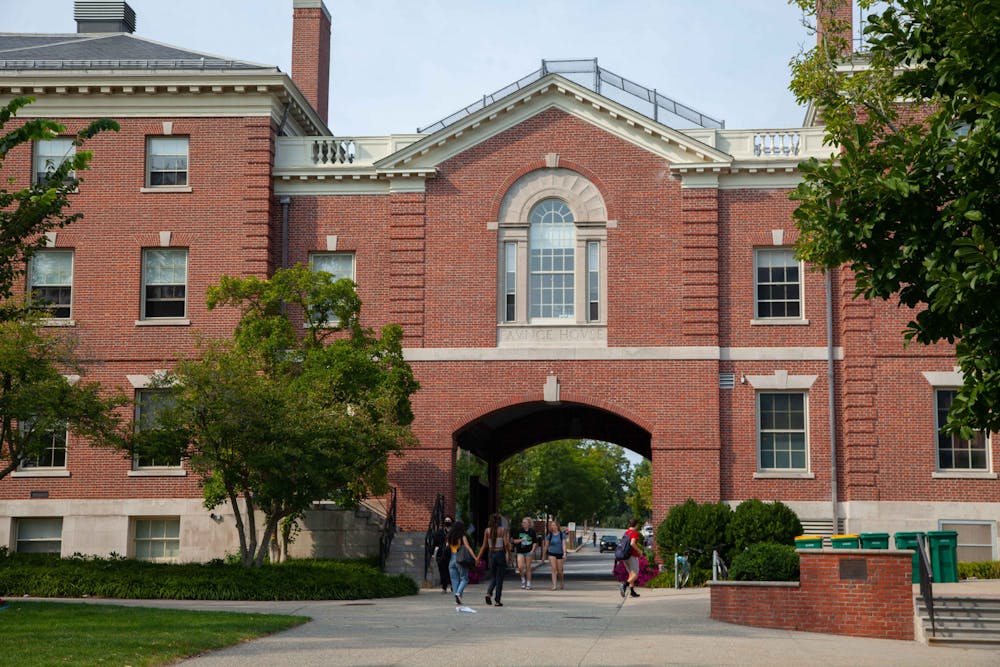Two new committees — an outreach committee, led by Jung Haye To ’24, and a polling committee, led by Alexander Ávila ’23 — were announced at a Sept. 14 Undergraduate Council of Students meeting.
The new committees, which will be headed by the newly created roles of outreach director and polling director, have been put in place to “bridge the gap” in communication between students and the administration, UCS Vice President Mina Sarmas ’24 said.
The goal of the outreach committee is to create a more “consistent means of interacting with the student body,” Sarmas said. The committee is composed of ten students, To said. Currently, there is a lot of “virtual communication,” but there is still a “need for in-person communication outreach” between UCS and the general student body, To said, and the new position will be able to fill this void.
To has held office hours on the main green to “bond” with students since the start of the semester, he said. He has also hosted panels with UCS President Ricky Zhong ’23 on topics such as housing, meal plans and identity centers, among others. To said that upwards of a hundred students attended some of the panels.
Now that school is in session, To plans to hold more social events to “bring the (University) community together,” he said.
A lot of work done by UCS often “fell between the gaps” and wasn’t communicated to students, so the outreach committee was also created to increase “visibility of (UCS) initiatives (and) current work,” Sarmas said.
To will also be looking to recruit for UCS and create a more “in-person line between UCS and the community,” Zhong said.
“We hope to … serve as a liaison between the University community and administration,” To said.
The polling committee seeks to gain student feedback, Ávila said. Ávila found out about the position through an email sent by UCS and was appointed to the position by Zhong and Sarmas over the summer.
Ávila will also oversee a group of students that will help collect and sort data. In prior years, there would be one UCS poll per semester which would take “around 20 minutes” to complete, Zhong said. UCS was previously not able to “timely” obtain student concerns and act on issues due to the lack of frequency of previous polling, he added. Ávila said the committee hopes to obtain data on relevant school issues that will help UCS and the administration collaborate.
This year, there will be multiple shorter polls that “target specific issues” such as dining services, residential life and facilities, Sarmas said. Some polls will be sent to relevant groups to obtain feedback, such as to first-years after the flood in Keeney Quadrangle.
“Having a connection to the student body is (reciprocal) in the sense that (students) feel that they’re being listened to … and being heard,” Zhong said.
Ávila plans to have polls come out “every four to five weeks” in order to collect data from students at more regular intervals, he said. Once the polls are completed for the semester, he hopes to distribute a “policy memo” to UCS which will also be made publicly accessible.
“The polls are really important in terms of advocacy efforts. It’s really helpful to have numbers on what specific things are affecting students,” Sarmas said.
She hopes the “frequent feedback” from students through polls and events via the outreach committee will also lead to a natural increase in connection to the student body, Sarmas added.





